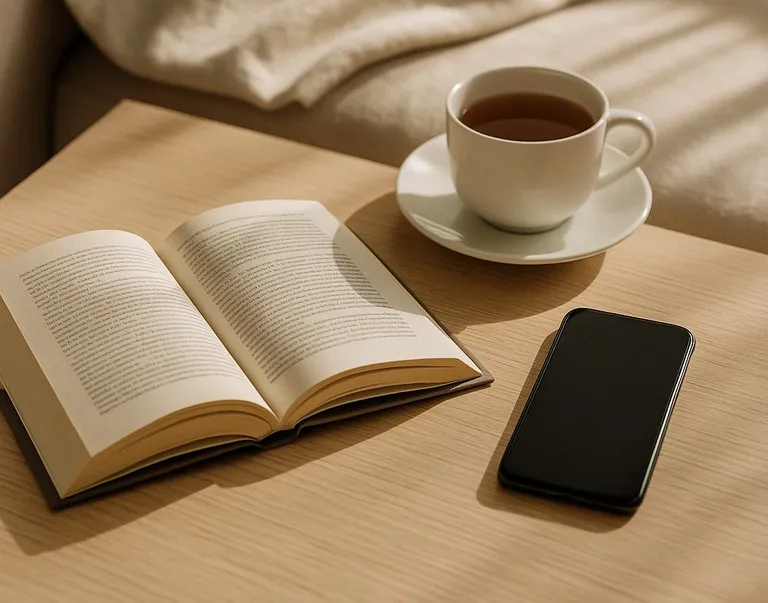🧘♀️ Your Mind Wasn’t Made for Constant Notifications
Between emails, texts, breaking news alerts, and doomscrolling TikTok — our brains are in constant input mode. And while technology helps us stay connected, it also makes it harder to just… breathe.
That’s why more people are adopting a simple but powerful habit:
Unplugging once a week.
It doesn’t mean you go full off-grid. It just means choosing to step away from screens — even for a few hours — to reset your nervous system and reclaim your focus.
🧠 What Happens to Your Brain When You Unplug?
Neurologists and psychologists agree: digital overstimulation is real, and the cure is intentional disconnection.
Here’s what happens when you unplug — even just weekly:
1. Reduced Anxiety and Stress
Constant connectivity keeps us in a low-level “fight-or-flight” mode. Unplugging allows your nervous system to downshift, lowering cortisol (your stress hormone).
2. Improved Sleep Quality
Blue light and late-night scrolling mess with your circadian rhythm. No screens = better melatonin production = deeper rest.
3. Better Focus and Creativity
When you step away from the noise, your brain finally gets a chance to daydream, reflect, and make deeper connections — key ingredients for creativity.
4. Emotional Regulation
Being always-on can make us reactive. Unplugging creates space for self-awareness and calmer responses, especially when paired with journaling or nature time.
📆 How to Start a Weekly Unplug Ritual
You don’t need a cabin in the woods — you just need intention.
Here’s a simple starter plan:
🕒 Pick your time
- Choose a 2–4 hour block once a week (Sunday afternoons work great).
📴 Silence or shut off your devices
- No emails, socials, or endless scrolling.
🌿 Choose analog activities
- Walks, journaling, reading a real book, cooking, or just being.
💬 Let people know
- If needed, set an auto-reply or let close ones know you're offline — it sets boundaries and expectations.
💬 What People Are Saying
“Unplugging every Sunday morning gave me back my peace.”
— Marcus, 34
“I didn’t realize how tense I was until I spent two hours with no phone.”
— Alyssa, 28
“It’s like giving my brain a warm bath.”
— Javier, 42
By Tammy - MicuPost
Sources:
- American Psychological Association (APA)
- “Digital Minimalism” by Cal Newport
- Studies from the Journal of Behavioral Addictions



